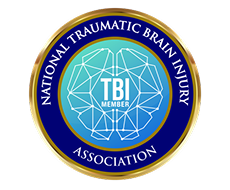How Genetic Studies are Advancing TBI Research
Genetic research is rapidly advancing the field of traumatic brain injury (TBI) by providing insights into how individuals respond to brain injuries and the potential for personalized treatments. TBI, which results from external forces damaging the brain, can lead to a wide range of cognitive, emotional and physical impairments. While some individuals recover with minimal long-term effects, others may experience severe, lifelong consequences. Genetic research is helping to explain why these outcomes vary and offers the potential to improve diagnosis, treatment and prevention.
One key area of genetic research in TBI involves identifying genetic variations that influence an individual’s susceptibility to injury and their ability to recover. Studies have shown that certain genes, particularly those involved in inflammation, cellular repair and neuronal survival, can play a significant role in the severity of injury and the brain’s capacity to heal. For example, variations in the apolipoprotein E (APOE) gene, known for its link to Alzheimer’s disease, have been shown to affect how the brain responds to TBI. Some variations of the APOE gene increase the risk of cognitive decline following a TBI, while others may offer a degree of protection.
Another promising area of research focuses on genes related to oxidative stress and inflammation, both of which are activated following a brain injury. These processes can cause further damage to brain cells and contribute to the development of conditions such as post-traumatic stress disorder (PTSD) or neurodegenerative diseases. By understanding how these genetic factors influence the brain’s response, researchers are working toward identifying individuals who may be at higher risk for these long-term complications.
Additionally, genetic studies are aiding in the development of more targeted treatments. With knowledge of an individual’s genetic makeup, doctors may be able to recommend personalized therapies that improve recovery outcomes. For instance, genetic testing may help identify patients who could benefit from certain pharmaceutical treatments or rehabilitation strategies, improving the effectiveness of interventions.
In conclusion, genetic research is advancing TBI research by revealing the underlying biological factors that influence injury severity and recovery. These discoveries are leading to more personalized, effective treatments and offering hope for better outcomes for individuals with TBI.
Contribute to the TBI Times





